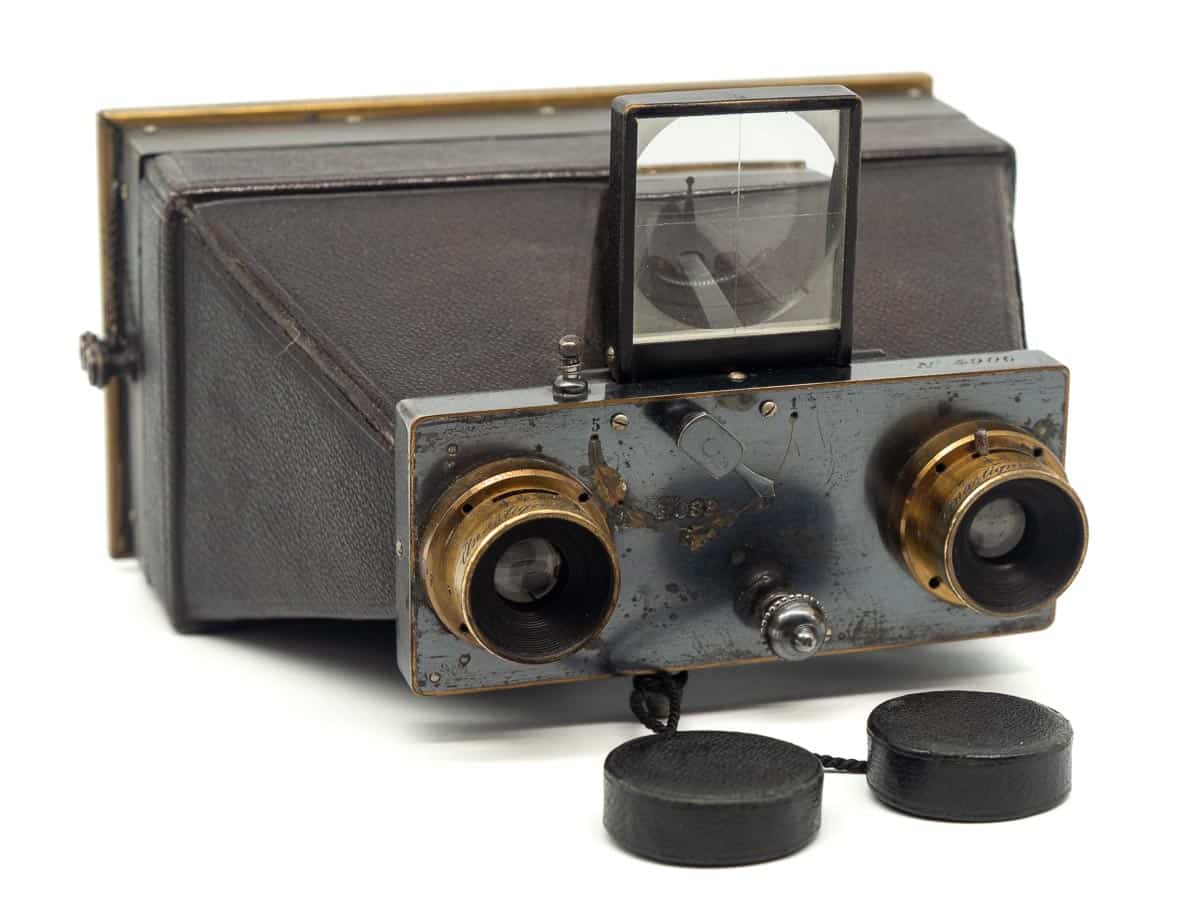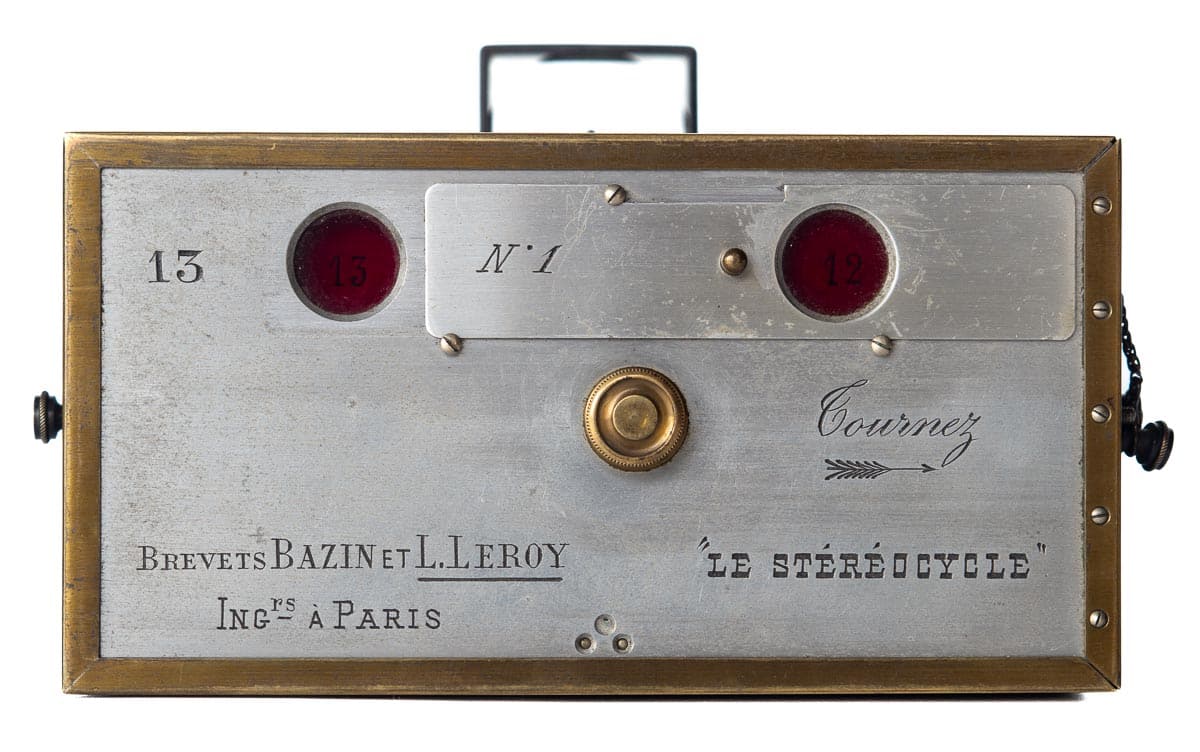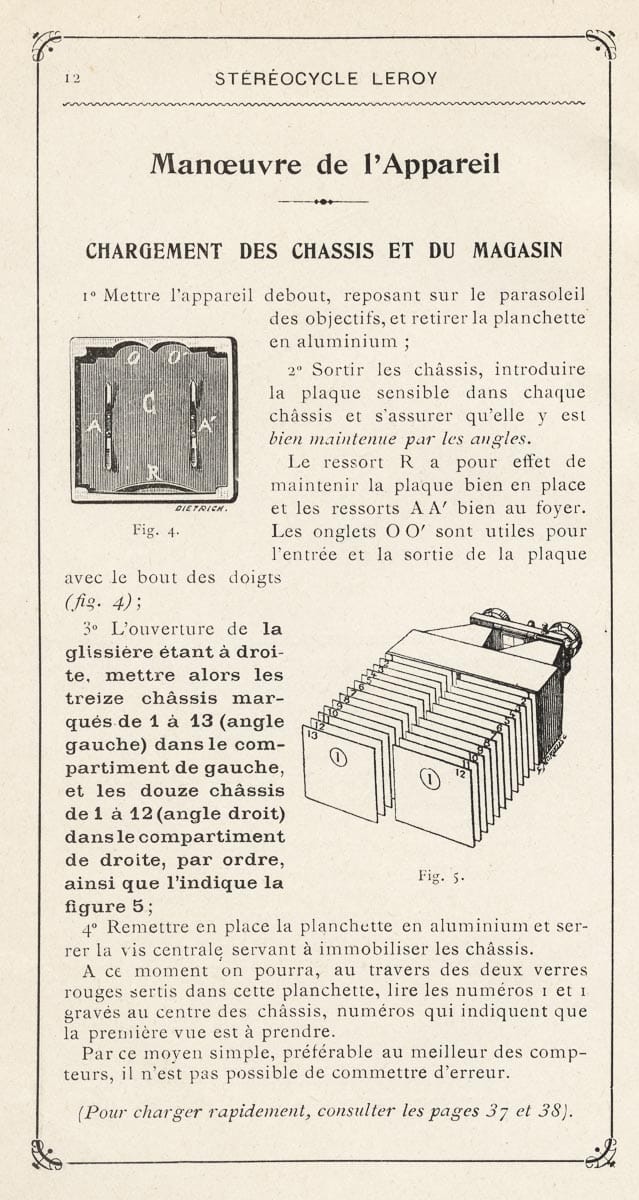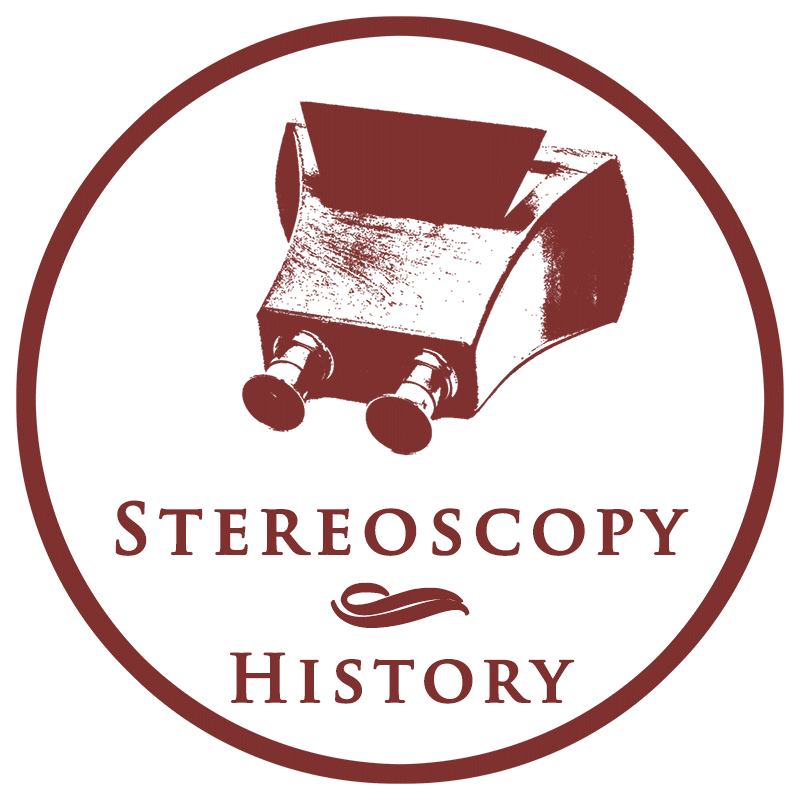
Le Stéréocycle is a Jumelle-type camera. The name “Stéréocycle” is based on its clever design that uses rotation cycles to load new glass plate negatives. The two 6 x 6.5 cm glass plates that form a 6 x 13 cm stereo pair are placed in separate metal frames. After each exposure, the cover of the magazine is loosened, and the camera is rotated clockwise twice (with the lenses down). This places two new, unexposed plates in capturing position. Each rotation moves a plate from the back of the left stack to the back of the right stack and a plate from the front of the right stack to the front of the left stack.

In the years that followed, new variants of the camera emerged. In 1903, Le Stéréocycle à Décentrement was introduced, which supports a rising front of the lens panel. Two years later, Le Stéréocycle Simplifié was introduced. This simplified model used common 6 x 13 cm glass plate negatives and eliminated the use of the sophisticated rotating system. Although Leroy was not a fan of the 45 x 107 mm format, the simplified model was also available for the small format and was called Stéréocycle de Poche.

Specifications
| Manufacturer: | Lucien Leroy, Émile Guérin |
| Year of introduction: | 1897 |
| Year of manufacture: | c. 1901 |
| Type: | Jumelle stereo camera |
| Serial number: | 4906 |
| Negative type: | Glass |
| Negative format: | 6 x 13 cm. The plate holder contains 24 glass plate negatives of 6 x 6.5 cm (12 stereo pairs) |
| Lens: | Two Anastigmat Koch lenses |
| Serial number lens: | None |
| Lens aperture: | 1, 2, 3 ,4 |
| Focus: | Fixed focus |
| Shutter: | Spring powered Leroy shutter with five shutter speeds: 1/10 sec., 1/25 sec., 1/45 sec., 1/60 sec., 1/75 sec. |
| Dimensions (L x W x H): | 15 x 14 x 8 cm |
| Construction: | Metal body with black leather cover |
Patent
| Number: | FR269023 |
| Title: | Nouveau système de jumelle stéréoscopique pour la prise de vues photographiques. |
| Filing date: | 24-07-1897 |
| Publishing date: | |
| Applicant(s): | Charles Bazin, Lucien Leroy |
Glossary: anastigmatic lens / jumelle / negative / rising front
Bazin, Leroy and Guérin
Charles Dessoudeix was a watchmaker. Dessoudeix’s company was founded in 1872, and located at 47, Rue du Rocher in Paris. In 1883, he helped Albert Londe with the development of a camera shutter. A year later, they presented their first shutter, branded Londe & Dessoudeix. Dessoudeix’s company was continued by Charles Bazin in 1891. Bazin partnered with Lucien Leroy, and together they introduced Le Stéréocycle, an innovative stereo camera that became very successful. Bazin left the company in 1899, and Leroy succeeded him. For more than 20 years, Leroy’s main focus was the manufacturing of the Stéréocycle and Stéréo-Panoramique stereo camera. Leroy partnered with Émile Guérin in 1916. Guérin took over the company in 1919 or 1920 and moved to 109, Rue du Bac in Paris. Guérin introduced new products to the company’s product line. New products continued to be introduced under the name Leroy. This was proof of Leroy’s strong reputation in France.
The complete story of Bazin, Leroy and Guérin
